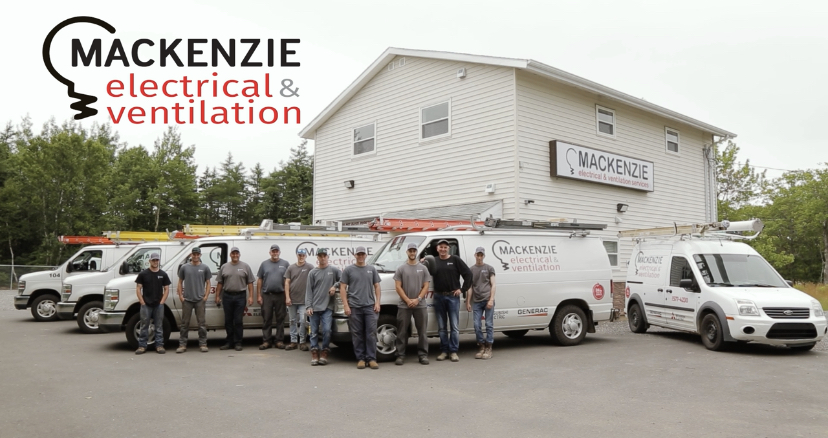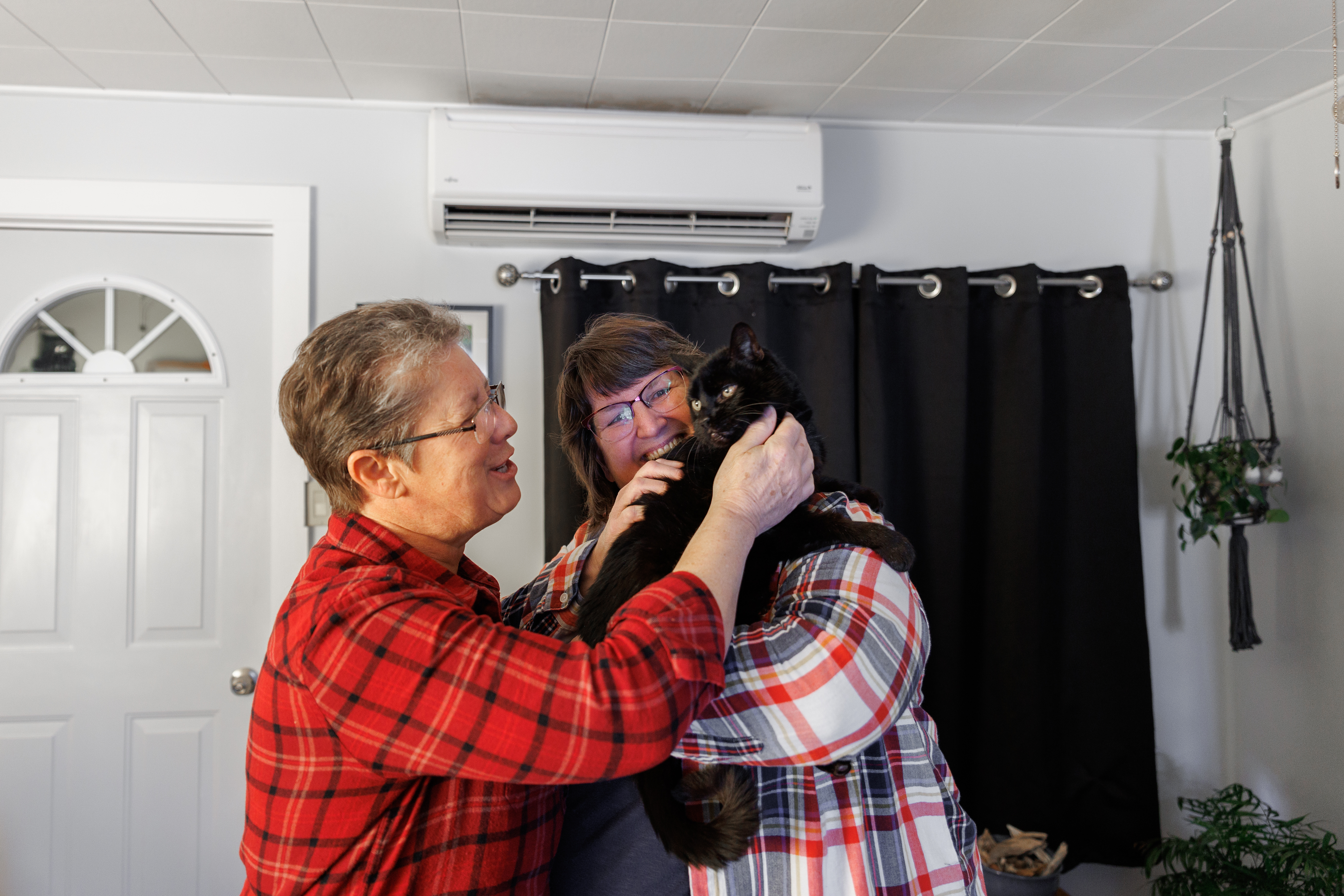Home heating 101: the benefits of going electric
For generations in Nova Scotia, the majority of homes were heated by oil-fired boilers or furnaces. And many homes still are. But more and more homeowners are deciding to leave oil—and propane, and natural gas—behind and switch to cleaner, efficient and convenient electric heating options.
As we work to grow our use of clean energy, we’re focused on connecting customers with greener electricity solutions—technologies that not only lower GHG emissions but enable cost savings. Experts who best understand the ins and outs of making the switch to electric are those with hands-on experience converting homes to electric heat: our network of preferred contractors. It includes partners like MacKenzie Electrical Services Ltd., a family-owned and -operated business serving all of Cape Breton.
With over 27 years of experience, MacKenzie Electricals’ Darren MacKenzie—a recent winner of our Q3 contractor recognition award—has first-hand knowledge of how and why electrical heating is a great option.
Switch to electric to save money
The bottom line is that recent advances in electric heating technology have made electric heating more affordable, especially when compared to a fossil fuel heating source like oil.
“Modern electric heating is more affordable than heating with oil,” says MacKenzie. “Even having an oil tank on your property will cost you money in your home insurance. Switch to electric heating, and you’ll save every winter.”
MacKenzie is most excited about the potential of heat pumps and electric thermal storage (ETS). “Making the switch to a heat pump or ETS can be easy,” he says. “We can help design your heating system on any new construction build to ensure it meets your needs and is the correct design for your home.”
Heat pumps are twice as efficient as traditional oil systems
Heat pumps use a single system to heat, cool and dehumidify your home. They use a compressor, copper coils and liquid refrigerant to “move” heat in or out of your home, depending on the season.
They’re much more efficient than traditional heating methods and twice as efficient as traditional oil systems. “Any form of heat pump as your main source of heat—mini-split or central—is an efficient and affordable way to heat your home,” MacKenzie explains. “Today, most heat pumps are minus-30 rated, so they’ll pretty much carry you through a Nova Scotia winter.”
You can even add a heat pump water heater. “If you’re cooling down a room, it takes heat out of the room and converts it to energy, which is then used to heat water.”
Save even more with Electric Thermal Storage (ETS)
Electric Thermal Storage, or ETS, is a home heating device containing ceramic bricks that store heat during off-peak times—when electricity costs less—and then releases the heat throughout the day.
“Adding an ETS to your heat pump setup is the best of both worlds,” MacKenzie says. “You can get Time-of-Day rates to save money since they ‘charge’ during off-peak times. Run your ETS from late fall, through winter, until April or so, then switch to your heat pump alone.”
“If you need a panel upgrade for your ETS, you can finance it, so it’s a simple addition that’s made affordable.”
A greener solution
Another important benefit of making the switch to electric heating is the environmental impact. “It’s one of the easiest ways for Nova Scotians to reduce their household’s carbon footprint,” says Mackenzie.
By 2022, 60 per cent of our electricity will be generated through clean energy sources. It means that when you choose to heat your home using electricity, you’re making an impact by plugging into a greener grid.
Final word
MacKenzie’s advice for anyone considering switching to electric heat, including a heat pump or ETS, is to do some research and choose a good contractor. It takes a lot of expert knowledge to make the right switch.
“The number one thing is that a heat pump and ETS setup is a great heating system that’ll give you both comfort and savings,” MacKenzie emphasizes.
So, if you’re thinking about the upcoming heating season this fall, give some thought to switching to electric. And if you live in Cape Breton, think about getting in touch with MacKenzie Electrical—they’ve been doing this for a long time.

Share This Post:






